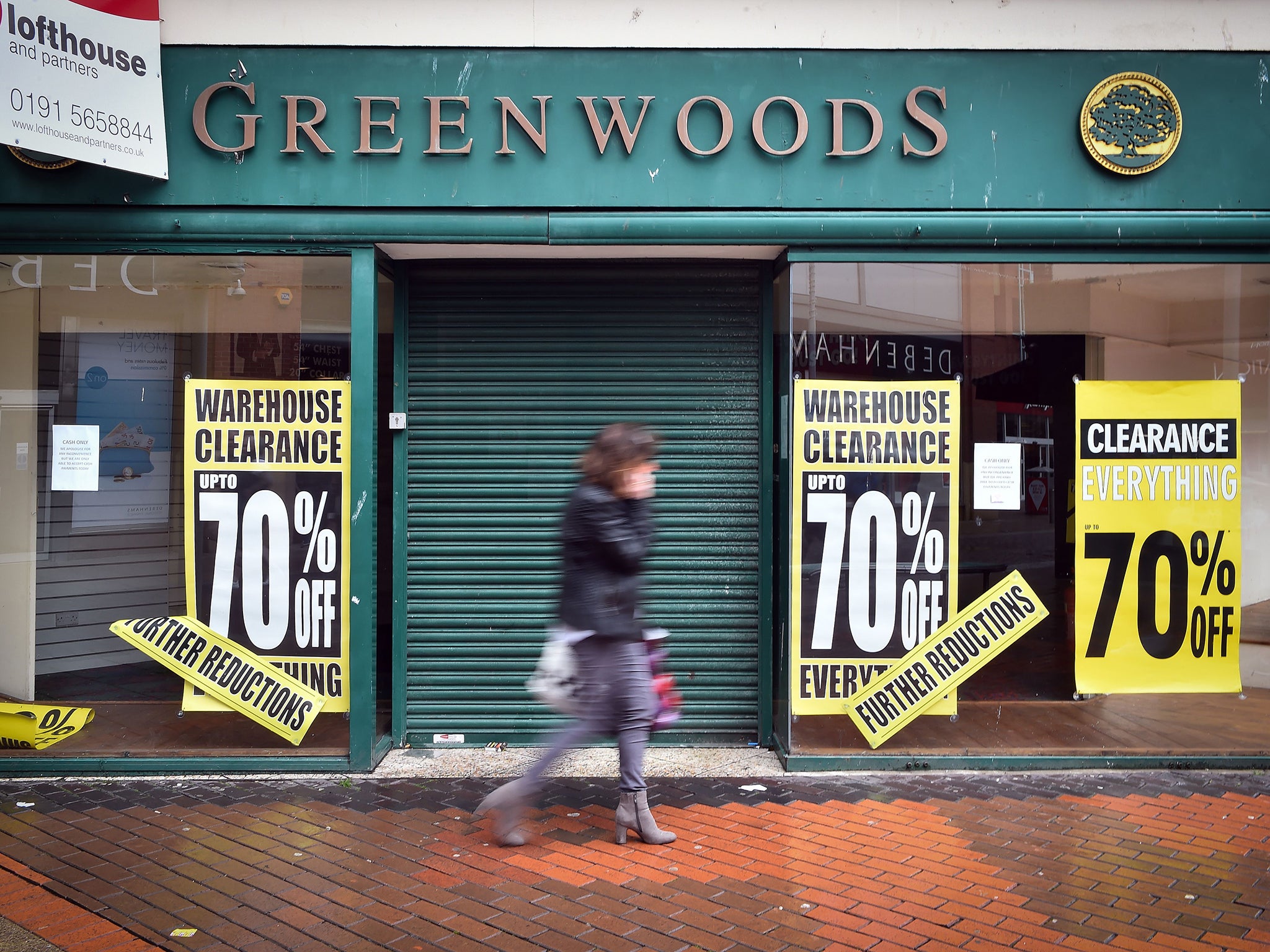The government must stop the death of the British high street or the results could be catastrophic
In the fight to save the shops, the time for action is now. Chris Blackhurst looks at exactly what needs to be done to avert this shoppers crisis


Still, the evidence continues to pour forth of a retailing industry in crisis.
The flow of bad news is constant and unrelenting. Along with news of yet more closures and businesses heading into administration, comes this from the British Retail Consortium: the trade body estimates 85,000 jobs have vanished from the high street compared with a year ago.
This, after another recent finding that the proportion of empty shops is now at more than 10 per cent.
Yet, still, precious little is being done about it. This inaction is baffling. Helen Dickinson, the BRC boss, is right when she says: “While MPs rail against job losses in manufacturing, their response to larger losses in retail has remained muted.”
One car plant alone is enough to dominate the Commons chamber, and spark grim headlines. But move to shopkeeping and there is scarcely much by way of noise, and certainly next to nothing in terms of concrete action.
Yes, there have been select committee inquiries, and evidence-gathering sessions by all-party groups. MPs and peers have voiced their concerns. Various TV programmes have been made and Mary Portas, the retail consultant, was asked to opine. But that is really about all.
What there is not is a sense of national crisis, with an accompanying call to arms, resulting in a slew of policy measures designed to stem the tide. In any other sector, I vouch, such steps would have been taken long before now.
It’s not clear why that should be so. Possibly, it’s because we take retailing for granted. It’s not an industry that pushes boundaries in terms of research and development, and is not easily internationally transferable. Tech, bio-pharma, bio-tech, financial services, and the creative industries by contrast, are far sexier and attract the plaudits of “world-beating”.
Retailing is in nationwide decline, with job losses spread across the country. There is not one location that is devastated, such as occurs when a manufacturing plant closes and thousands of local families are affected.
In that instance, in response to calls from the local MP and pleas from the council, the government frequently pumps in emergency aid and every effort is made to find alternative uses for the affected factory and employment for the workforce. There is no equivalent when a retailer sheds it branches.
Our high street crisis may be intractable. By common consent, one of the key reasons shops are in the mess they’re in, is business rates. It’s widely agreed the levy is anachronistic and requires overhauling or abolishing completely. So far, though, no one has come up with a workable solution. Councils meanwhile rely upon the cash raised via the old system.
In setting their rents, landlords could display greater compassion and flexibility. Again, much easier said than done.
We can level the playing field between bricks and mortar and online, by taxing the latter more heavily than at present. This, though, is similarly not so straightforward, since by now traditional retailers have added digital arms, and in some cases, they are selling more goods via the internet than through their high street outlets. Deciding whether a retailer is online or not, is not so clear-cut, not any more.

Shopping districts could be made more attractive for shoppers, and accessible for car owners. This would require expenditure on landscaping and the installation of aesthetic features. As for cars, the centres of our towns and cities are clogged enough as it is. The main roads are frequently narrow, and were laid out at a time when cars were not even invented. Plus, councils look to parking charges as steady revenue earners. And we’re living in an environmentally-conscious age when increased driving is to be discouraged not encouraged.
Making the streets more appealing, and freeing them up so drivers can park more easily and cheaply, may seem desirable on paper, but someone has to pay. Likewise, boosting public transport so shoppers can reach the stores – also much merit, but similarly it demands investment.
High streets are perceived as local affairs, and therefore only of local concern. Shop closures are headaches for councils, not for national government. As councils are strapped for funds, they are unable to make a concerted push to transform their shopping areas. So nothing gets done.
It just may be that officials have already run their computer modelling over our retailing industry and have come to some stark conclusions, that we have far too many shops and the rise of online is going to make that situation even worse. In which case, those results have not been made public, possibly because they are so grim.
Even so, there is an argument that says we should go out of our way to save our shops. Not all, but some. The ones that remain provide a community focal point, and act as magnets. Take them away and what is left is emptiness and decay, and thousands of school leavers go without jobs.
Our high streets are worth preserving, perhaps not in their current form, but they surely demand proper national attention. The government must act, in a meaningful, serious manner, and quickly.
Join our commenting forum
Join thought-provoking conversations, follow other Independent readers and see their replies
Comments
Bookmark popover
Removed from bookmarks